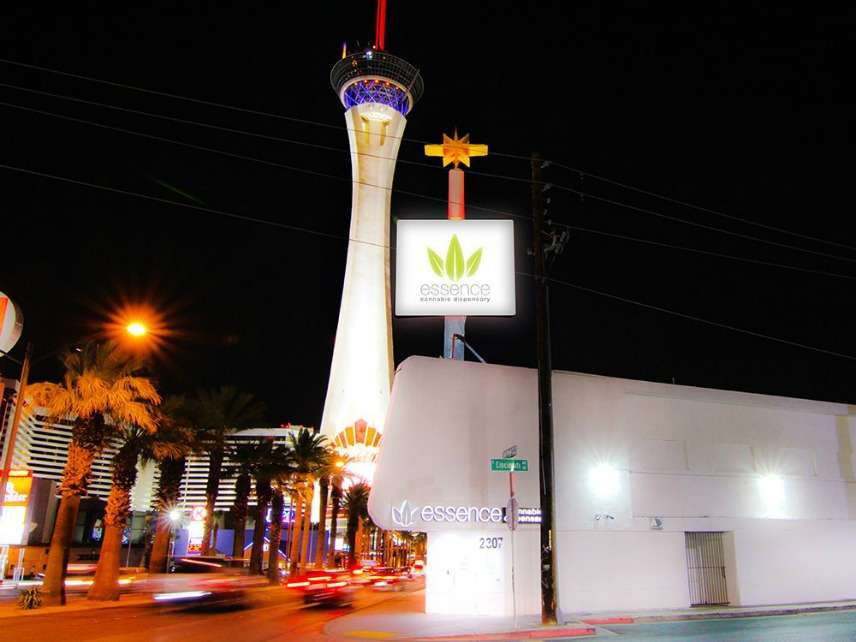Las Vegas Welcomes Marijuana Buyers but Not Marijuana Consumers
- OurStudio

- Aug 9, 2017
- 4 min read

Since the beginning of 2014, when Colorado became the first state to let marijuana merchants serve recreational consumers, those customers have faced the challenge of finding a place where they can legally enjoy the cannabis products they can now legally buy. That problem is especially acute in Nevada, one of the four states where voters approved legalization last November and the first to see recreational sales, which started on July 1 as retailers who once catered exclusively to state-registered patients opened their doors to anyone 21 or older. Las Vegas now has about two dozen businesses selling recreational marijuana but not a single one—not a bar, not a restaurant, not a hotel, not a club—where you can use it.
That is a serious problem for a city that each year sees more than 40 million tourists, who account for most of the newly legal marijuana buyers. Armen Yemenidjian, who owns Essence Cannabis Dispensary, a pot shop on The Strip, told CBS News "70 to 80 percent" of his customers are tourists. Presumably the percentage is lower at stores further from the city's most popular attractions. But the Nevada marijuana market is expected to become one of the country's largest on the strength of its tourist business, and it is hard to believe there is no plan to accommodate all of those visiting cannabis consumers.
Question 2, Nevada's legalization initiative, makes it a misdemeanor, punishable by a $600 fine, to consume marijuana in a store that sells it or in any "public place," defined as "an area to which the public is invited or in which the public is permitted regardless of age." You might think (as I did) that the phrase "regardless of age" suggests marijuana consumption would be legal in a business that does not sell cannabis but excludes anyone younger than 21, the minimum age for legal purchase and possession. But according to Morgan Fox, communications manager at the Marijuana Policy Project, which backed Question 2, the language was intended to mean "regardless of age restrictions." In other words, "regardless of age" was supposed to modify "the public" rather than "invited" and "permitted," meaning that even a business that is open only to people 21 or older would qualify as a "public place."
That is certainly the way the Las Vegas Metropolitan Police Department (LVMPD) reads the law. "Marijuana consumption is only allowed at private residences," says Jennifer Davies, an LVMPD public information officer. "It can never be consumed inside a business." Private clubs seem like a possible loophole, since they are not open to the general public. But as frustrated entrepreneurs in Denver have discovered, police tend to apply a strict definition of private clubs, the result of which is that any cannabis lounge accessible enough to attract tourists probably would not qualify.
One other possibility would be parked limousines or buses. Question 2 bans marijuana use "in a moving vehicle" but says nothing about stationary ones. The vehicle would have to be privately booked to avoid being deemed a public place, and even then police probably would take a dim view of it.
Question 2 does authorize the state legislature to "amend provisions of this act to provide for the conditions in which a locality may permit consumption of marijuana in a retail marijuana store." State Sen. Tick Segerblom (D-Las Vegas), a prominent Question 2 supporter, tried to do that last spring with S.B. 236, which would have allowed local governments to license businesses, including cannabis retailers, where marijuana could be legally consumed. The bill, which also would have allowed one-time licenses for special cannabis-friendly events, passed the Senate but never got a floor vote in the Assembly.
The resuit, as CBS News puts it, is that "the law here essentially says what tourists buy in Vegas, they can't use in Vegas." Nor can they legally take it home to consume there. As Yemenidjian, the marijuana merchant, observes, there's "no other industry in the world" where "you can you buy a product and then not use it anywhere."
Why did Question 2's backers decide to kick the can down the road on this issue? "It became clear early on that the initiative could not win if it included public consumption," MPP's Fox says, "and it was decided that the better course would be to try to improve the system after the initiative passed. Apparently it is a pretty common sticking point. None of the adult-use initiatives have included public consumption in any form, though they left the path open for this to change through regulation or legislation. It might be one of those things where even though it is the right way to go, the average voter just isn't there yet, possibly because there are very few examples in the U.S. to point to (and those exist in a gray area). When people see various forms of marijuana businesses in practice elsewhere and being regulated effectively, they become much more comfortable with them."




Comments